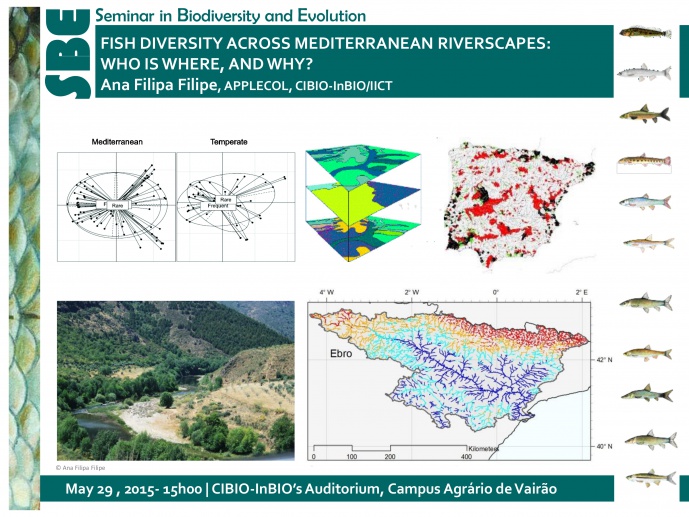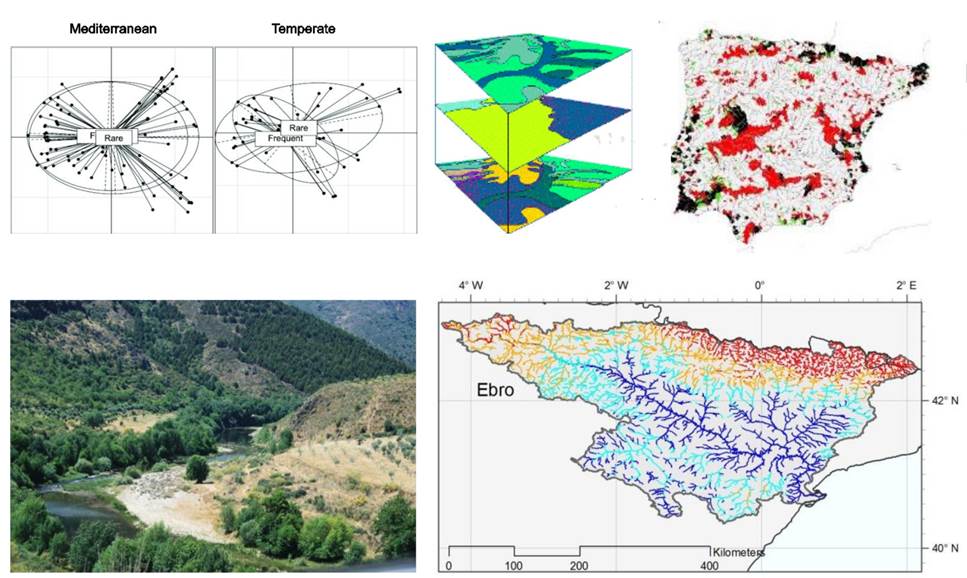FISH DIVERSITY ACROSS MEDITERRANEAN RIVERSCAPES: WHO IS WHERE, AND WHY?


Freshwater ecosystems are at the forefront of the global biodiversity crisis, which is happening faster than in terrestrial or marine environments. Both biological invasions and habitat alterations, particularly dam constructions, have been recognized as main causes of decline. Consequently a large proportion of organisms inhabiting freshwaters is now of conservation concern. Fish inhabiting streams provide a remarkable opportunity to unveil the mechanisms by which organisms cope with environmental changes, as they are relatively well-known and widespread across regions, highly dependent on water availability and climate, and disperse through well-defined pathways.
The way fish respond to habitat loss, connectivity, invasive species, and climate change has strong implications on the expansion or contraction of their distribution ranges, co-occurrence with other species, and ultimately their isolation and extinction. I will illustrate these issues using my recent and ongoing research under the ApplEcol Group, with a special focus on Mediterranean streams.
Ana Filipa Filipe has a PhD in Ecology by the University of Lisboa in partnership with University of Virginia (2010). Filipa worked as a postdoc at the University of Barcelona until 2013, and is working at APPLECOL, CIBIO-InBIO Research Group, since then. Main research spans over spatial and invasive ecology, landscape genetics, biogeography, and conservation planning concepts and approaches to address the effects of climate and hydrological changes on freshwater organisms, particularly fish.
[Group Leader: Pedro Beja Applied Ecology]
Image credits: Ana Filipa Filipe